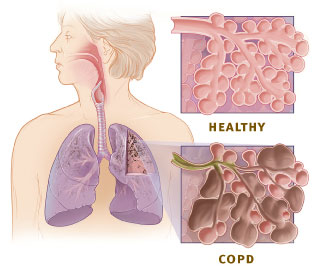Accidental venomous scorpion stings are very common world wide and so also in India. These are mainly found in dark, moist places, such as under rocks, wood, and loose tree bark; inside house and commonly outside house.
 Image via Wikipedia
Image via Wikipedia
Venom, if gets injected to a blood vessel directly may cause symptoms only 4-7 minutes after the injection, with a peak tissue concentration in 30 minutes and an overall toxin elimination half-life of 4.2-13.4 hours through the urine. The rapidity with which the venom enters the bloodstream, determines the onset of systemic symptoms.
Many victims may not require more treatment than first-aid or hospital admission. The envenomation may be classified to 4 grades depending on the clinical features and laboratory investigations. The manifestation in tern depends on the specis of the scorpion that tells about the toxins those can be present.
Scorpion venom may contain multiple toxins and other compounds. The venom is composed of varying concentrations of neurotoxin, cardiotoxin, nephrotoxin, hemolytic toxin, phosphodiesterases, phospholipases, hyaluronidases, glycosaminoglycans, histamine, serotonin, tryptophan, and cytokine releasers.
Depending on the predominance of the type or mixture of toxins present in particular specis the symptoms can vary. The most important clinical effects of envenomation are neuromuscular, neuroautonomic, or local tissue effects
Venomous scorpion stings may cause;
Adverse events related to treatment with the anti-venin include;
Venom, if gets injected to a blood vessel directly may cause symptoms only 4-7 minutes after the injection, with a peak tissue concentration in 30 minutes and an overall toxin elimination half-life of 4.2-13.4 hours through the urine. The rapidity with which the venom enters the bloodstream, determines the onset of systemic symptoms.
Many victims may not require more treatment than first-aid or hospital admission. The envenomation may be classified to 4 grades depending on the clinical features and laboratory investigations. The manifestation in tern depends on the specis of the scorpion that tells about the toxins those can be present.
Scorpion venom may contain multiple toxins and other compounds. The venom is composed of varying concentrations of neurotoxin, cardiotoxin, nephrotoxin, hemolytic toxin, phosphodiesterases, phospholipases, hyaluronidases, glycosaminoglycans, histamine, serotonin, tryptophan, and cytokine releasers.
Depending on the predominance of the type or mixture of toxins present in particular specis the symptoms can vary. The most important clinical effects of envenomation are neuromuscular, neuroautonomic, or local tissue effects
Venomous scorpion stings may cause;
- Excruciating pain at the site of sting,
- Shortness of breath or breathlessness
- Accumulation of fluid in the lungs, called pulmonary oedema,
- Excessive salivation,
- Slurred speech and confusion,
- Difficulty in swallowing, may be due to what is called angioedema,
- Abnormal eye movements, the classical rotor eye movement,
- Muscle twitching,
- Difficulty in walking and co-ordination,
- Other uncoordinated muscle movements.
- Renal failure.
- Death.
- Cleaning the affected part with soap and water,
- Application of a cold compress,
- Elevation of the affected limb.
- Analgesics like aspirin or acetaminophen,
- Anti-allergic,
- Local anesthetics to alleviate pain,
- Catecholamine blocking agents according to the predominance of type i.e. parasympathetic or sympathetic activity.
- Intravenous fluids,
- Monitoring of airway, breathing and circulation.
- Dialysis.
Adverse events related to treatment with the anti-venin include;
- Allergy to horse serum,
- Nausea and Vomiting,
- Fever,
- Rash,
- Headache and
- Muscle pain.
...
Click here to Subscribe news feed from "Clinicianonnet; so that you do not miss out anything that can be valuable to you !!
...






